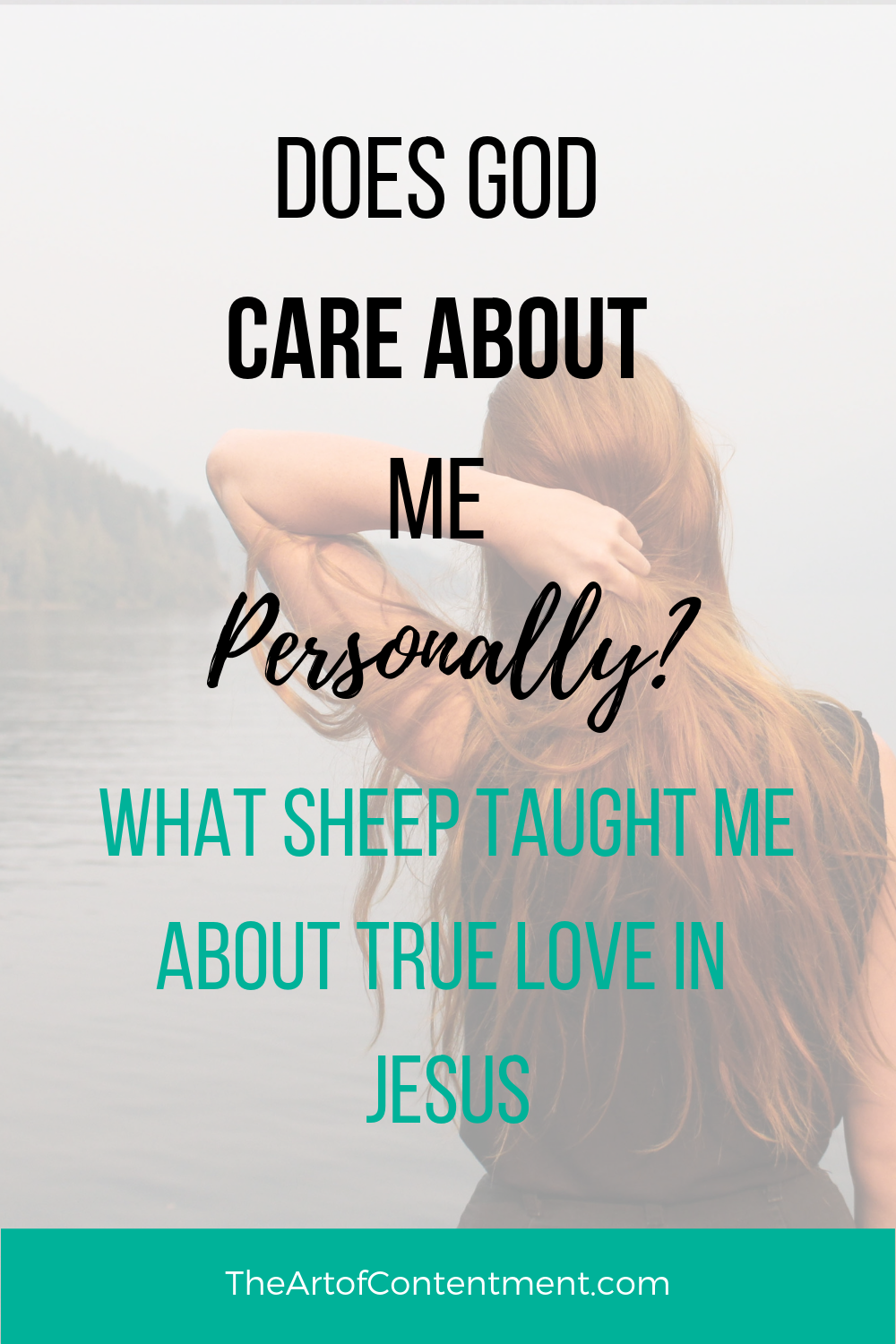 I had a season of life not long ago when anxiety ruled my days and haunted my nights. This painful period provoked questions about God: why is He letting me suffer? Why doesn’t He feel close? What does it feel like to watch your child suffer, God? But those questions distilled into one question: What is God’s heart really like?
I had a season of life not long ago when anxiety ruled my days and haunted my nights. This painful period provoked questions about God: why is He letting me suffer? Why doesn’t He feel close? What does it feel like to watch your child suffer, God? But those questions distilled into one question: What is God’s heart really like?
In another season of life, I held a pink baby boy with puffy eyes, curled hands, and a round warm tummy. I marveled. Love in human form. More questions arose: Does God love me like I love this baby? More? How can God have a distant personality yet give me the capacity to treasure this child? How much did it hurt to watch Your son die? Those questions refined down to one: What is God’s heart really like? And where is my place in it?
God began revealing Himself to me, and recently He showed me a glimpse of His divine heart in an unlikely form.
Sheep.
Being called a sheep isn’t exactly a compliment.
Unless you are a shepherd.
Jesus told parables about shepherds and sheep to an agrarian society familiar with the practice of keeping sheep. Abel kept sheep, and so did Abraham and King David and countless Hebrews over the millennia. When Jesus called Himself the Good Shepherd, His analogies were as familiar to listeners as driving a car is to us.
Did you grow up on a sheep farm? Most of us didn’t. We’ve patted sheep at petting zoos and admired their cloud-colored bodies dotting hillsides as we passed by on our way to somewhere else. The age-old work of shepherding has been drowned in the deluge of modern living.
When we imagine the life of a shepherd, we conjure images of the quiet country life. A shepherd resting on a hill sweet with grass, watching his clean, content herd graze quietly by a stream. Tranquil.
In our hectic lives chasing children, commuting to school, risking our lives on the highway, returning calls, and scheduling appointments, we might envy the shepherd his quiet life.
We’d be wrong.
What can the life of a real shepherd, conducted in the ancient way of leading flocks from pasture to pasture, teach us about our own Shepherd?
Our Shepherd is in the muck and the rain with us.
Mathew 9:36 (NKJV) But when He saw the multitudes, He was moved with compassion for them, because they were weary and scattered, like sheep having no shepherd.
Why did Jesus call Himself the Good Shepherd, rather than the Good Rancher, or the Good Chicken Farmer, or the Good Fisherman?
The answer lies in the amount of intimate, hands-on, one-to-one attention needed by sheep. No other livestock trade requires the level of personal care as shepherding sheep.
Jesus didn’t compare Himself to a cowboy who could round up steer from horseback, fill tanks with feed, and walk away for the night. He didn’t keep birds, scattering seed, collecting eggs and moving on to other tasks around the farm.
Instead, He is the Good Shepherd who leads, feeds, and guards His sheep when the sun is giving him a headache, or the rain is pouring into his bones, or snow is crusting his eyelashes.
When the ewes give birth at night, He helps the lambs into the world. That touches me. As moms, we’re never more vulnerable than when we’re alone with a tiny newborn in the dark hours. And yet, Jesus shows us, we are not alone.
When we are hungry, our Shepherd fills us. When we are wandering, He gathers us to Him and leads us to safety. When storms approach, He comforts us. When wolves attack, He defends us.
Yes, we still deal with life in the wilderness, with its trials and its beauty, but we walk through it with our shepherd as guide by day and sentinel by night.
The sheep follow only the shepherd’s voice.
John 10:3-5 (NKJV) And when he brings out his own sheep, he goes before them; and the sheep follow him, for they know his voice. “Yet they will by no means follow a stranger, but will flee from him, for they do not know the voice of strangers.
Sheep learn to listen only to the shepherd’s voice and to come when he calls. If a stranger calls the sheep, even if the interloper uses the shepherd’s own words or distinctive call, those sheep remain preoccupied with nibbling grass. They’re a picture of utter disinterest. But when the shepherd calls, the sheep’s reaction is instantaneous. Wooly heads pop up and the flock begin darting toward the shepherd and swirling around his legs.
The sheep trust the shepherd. They have learned that his voice alone means safety, provision, and tenderness. We, as Jesus’s sheep, must focus only on His voice. This means disregarding the earnest pleas and enticing words of anyone who would lead us astray. We can have peace in heeding just one voice and shutting out the cacophony of the world outside.
Too many choices? Too many voices? Ignore them. Only One matters.
The Shepherd is close to us even when we can’t see Him.
Matthew 28:20b (NKJV) and lo, I am with you always, even to the end of the age.” Amen.
When we feel like Jesus is far away, we couldn’t be further from the truth.
When we know the shepherd’s voice, we don’t need to see him in order to follow. Sheep take advantage of the shepherd’s voice when the flock is grazing on hills shrouded in fog. Blinding fog that hides the shepherd’s form and to the flock, he is invisible. But when his voice rises, the sheep focus on him and plow through the whiteout to rally with the shepherd.
God doesn’t always feel near. Sometimes our arms ache from reaching for Him. But when we can’t see His clear direction in our lives, when the sun has dimmed and we are confused and lost, then we can hear His voice in His Word.
Have you ever read a verse that applied to the problem you’re dealing with? His voice is whispering to you.
Has a friend and your pastor both spoken on the same passage this week? His voice directing you through godly counsel.
Has your spirit just soared as you sang a hymn? His voice saying “worship Me, draw near to Me.”
When we can’t see the shepherd, He knows where we are. We are on His mind, never far from His strong hands, and always within reach of His voice.
Jesus shepherds the whole flock, but He cares for each of us personally.
Matthew 18:12 (NKJV) “What do you think? If a man has a hundred sheep, and one of them goes astray, does he not leave the ninety-nine and go to the mountains to seek the one that is straying?”
While the shepherd is responsible for the welfare of the whole flock, the group thrives because the shepherd pays keen attention to each sheep in the flock. Daily he examines each sheep for signs of illness or injury. He notices when a member has fallen behind. He pursues when an ornery buck peels away from the group.
A shepherd embodies both tenderness and toughness. He walks ahead and among. Every individual matters to the shepherd.
Have you ever known someone who seemed to receive blessing after blessing?
Or regaled you with amazing reports of God’s will leading her into an exciting new venture?
Or perhaps God is moving and shaking in your congregation as souls are being saved through community outreach. Does it sometimes feel like God is working in the church at large, but doesn’t seem to notice you?
It hurts to be left out. It stings to feel overlooked.
But our shepherd knows that a healthy church is made up of healthy individual members. Even as He moves tribes and nations toward Him, He also calls us.
Jesus reiterated how special even one person is in His parable of the lost sheep. One sheep out of a hundred went astray. Many people would be content to retain 99% of the flock. Is one run-away sheep important when the rest of the flock needed His attention? Jesus says that not only does the shepherd pursue His one little sheep, but He rejoices more over finding it than He does about 99 sheep that stayed put.
And how much more valuable are you than a sheep?
The whole flock fails or flourishes based on the shepherd’s compassion for each individual. We have a shepherd who does not tire, or sin, or change His mind, or relent of His love.
The shepherd’s boundaries are for protection, not punishment.
John 10:1-3 (NKJV) Most assuredly, I say to you, he who does not enter the sheepfold by the door, but climbs up some other way, the same is a thief and a robber. But he who enters by the door is the shepherd of the sheep. To him the doorkeeper opens, and the sheep hear his voice.
In biblical times, shepherds had a sheepfold made of stacked rocks a few feet high. The only way in was through a single opening. When shepherds were leading flocks from pasture to pasture, they built temporary sheepfolds from branches and brush. Each evening the sheep passed under the shepherd’s staff into the sheepfold. As they passed, he inspected them. Once the sheep were inside for the night, the shepherd laid across the opening. If a wolf or a thief wanted a sheep for dinner, he had to get through the shepherd or try to climb the wall. And curious lambs couldn’t wander out.
When our shepherd gives us boundaries, they are loving limits. Boundaries keep us out of trouble or block trouble from getting to us.
Those walls are protecting us, not holding us. Limits can feel like punishments. Boundaries can be frustrating. We want to push past them, hover near, step a toe over just a bit.
But when God says, “Don’t go there,” He means it for our good. He can see past that boundary to what’s beyond. Our narrow perspective can hurt us if we’re tempted to cross boundaries by sinning or making decisions we know are against God’s will. Love sometimes means saying “no.”
Personal challenge: Listen to the song “So Will I” that’s posted below. Then pray and ask God to reveal Himself to you in a personal way. Write it down.
John 10:11 “I am the good shepherd. The good shepherd gives His life for the sheep.”
Jesus, in His wisdom, used shepherding to illustrate the intensity of His personal concern for each of us. And He didn’t just talk the talk, He walked the walk…to the cross. A shepherd who was willing to die for His sheep. Never again can we say that God does not see our sorrows or share our joys. He stands in the door of the sheepfold, counting us one-by-one as we enter His kingdom. I want to leave you with the final words of a song that’s become one of my favorites (and yes, it’s a reference to sheep): “You’re the One who never leaves the one behind.”

So true, enjoying your blog. Well written. I always share it because it enriches my life. Thank you.